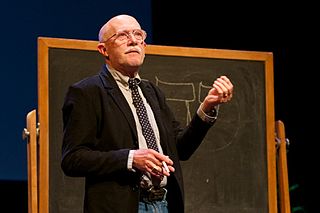A Quote by Bayard Rustin
God does not require us to achieve any of the good tasks that humanity must pursue. What God requires of us is that we not stop trying.
Related Quotes
The Christian is in a different position from other people who are trying to be good. They hope, by being good, to please God if there is one; or — if they think there is not — at least they hope to deserve approval from good men. But the Christian thinks any good he does comes from the Christ-life inside him. He does not think God will love us because we are good, but that God will make us good because He loves us; just as the roof of a greenhouse does not attract the sun because it is bright, but becomes bright because the sun shines on it.
The story of the gospel is so much better than the legal model suggests. It tells us that we are created as God's partners, not God's enemies. Sin does a lot of damage to that partnership - it disables us, it discourages us, it disturbs us - but it never destroys the bond that exists between God and humanity.
The duties God requires of us are not in proportion to the strength we possess in ourselves. Rather, they are proportional to the resources available to us in Christ. We do not have the ability in ourselves to accomplish the least of God's tasks. This is the law of grace. When we recognize it is impossible for us to perform a duty in our own strength, we will discover the secret of its accomplishment.
There are two gods. The god our teachers teach us about, and the God who teaches us. The god about whom people usually talk, and the God who talks to us. The god we learn to fear, and the God who speaks to us of mercy. The god who is somewhere up on high, and the God who is here in our daily lives. The god who demands punishment, and the God who forgives us our trespasses. The god who threatens us with the torments of Hell, and the God who shows us the true path.
There are two gods. A god who casts us off because of our sins, and a God who calls to us with His love.
Honesty before God requires the most fundamental risk of faith we can take: the risk that God is good, that God does love us unconditionally. It is in taking this risk that we rediscover our dignity. To bring the truth of ourselves, just as we are, to God, just as God is, is the most dignified thing we can do in this life.
When we pray for any virtue, we should cultivate the virtue as well as pray for it; the form of your prayer should be the rule of your life; every petition to God is a precept to man. Look not, therefore, upon your prayers as a method of good and salvation only, but as a perpetual monition of duty. By what we require of God we see what he requires of us.
The gospel is saying that, what man cannot do in order to be accepted with God, this God Himself has done for us in the person of Jesus Christ. To be acceptable to God we must present to God a life of perfect and unceasing obedience to his will. The gospel declares that Jesus has done this for us. For God to be righteous he must deal with our sin. This also he has done for us in Jesus. The holy law of God was lived out perfectly for us by Christ, and its penalty was paid perfectly for us by Christ. The living and dying of Christ for us, and this alone is the basis of our acceptance with God
Does God have a reason for wanting us to be charitable, to take care of those who can't take care of themselves? Either God does or God doesn't, it's just logic. If God has a reason then there is a reason independent of God and whatever God's reason is we should figure it out for ourselves. There is a reason and God doesn't really ground morality at all. God wants us to give charity because it's the right thing to do.









































